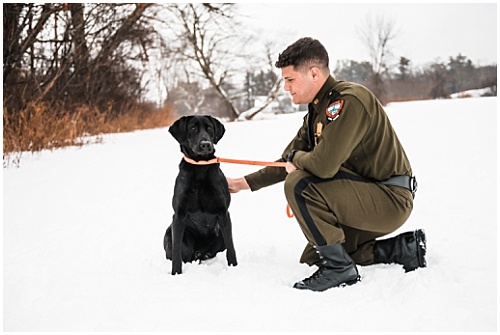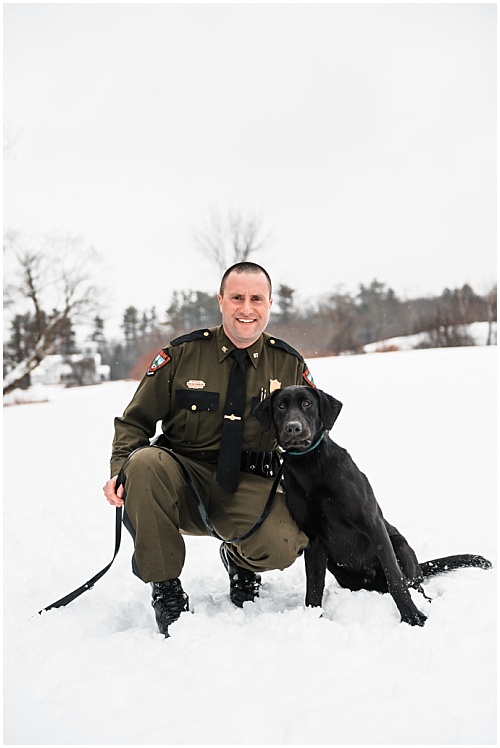March 6, 2020 at 9:00 am
It is imperative we find the best candidates to serve as Maine game wardens, and that remains true when it comes to selecting dogs for the Maine Warden Service K9 Unit. A thorough screening and selection process is an important step for a successful K9 team.
The team’s newest members are K9 Gordon who is partnered with warden Preston Pomerleau and K9 Luna who is partnered with warden Michael Latti. K9s Gordon and Luna were introduced to their handlers in February and will begin their intensive 14-week training at the Maine Criminal Justice Academy in March.

K9s Gordon and Luna, both black labs, were selected on a multitude of factors. Many breeds have been developed and selectively bred for detection work, exemplifying specific traits such as strong senses of smell, prey drive, and intelligence, making them more suitable than other breeds. Genetics, health, age, temperament, socialization, and strong drive are all high priority traits we assess when evaluating potential K9s. Common working breeds such as German and Dutch shepherds, Belgian Malinois, and Labrador retrievers possess many of these desirable traits we look for. We currently have seven black labs (including K9s Luna and Gordon), one Dutch shepherd, and one black shepherd in the K9 unit.

When selecting a new K9 it often comes down to timing, availability, location, quality, and financial cost. Labradors have been proven to be successful and versatile in fulfilling warden service needs, but mostly, they are more reasonably available in the United States and New England. Labradors are versatile in detection work and are often more approachable and less intimidating than some other working breeds. Aggression is not a desirable trait for our K9s because our detection work does not involve any apprehension or officer protection work.
Age is also a factor. We look for young dogs, typically one to two years of age, with minimal to no formal training. This way we have as few bad habits to overcome as possible once we start the training process. A solid foundation in environmental exposure, socialization, and drive development is critical in developing a young candidate. The working K9 needs to be mentally and physically mature enough to go through a rigorous daily training program for weeks on end.
Both K9s came from breeders who breed hunting retrievers with most of them being competitive in various venues that parallel many of the same qualities we seek in detection work. K9 Gordon came from Diamond Brook Kennel in Brandon, Vermont and K9 Luna came from Mill Pond Retrievers in Thomaston, Maine.
I hope you follow along as we document K9 Luna and K9 Gordon’s training over the next several months on Facebook, Instagram (@mefishwildlife), and here on our blog.
Read more from the Following Maine’s Newest K9 Handlers series: